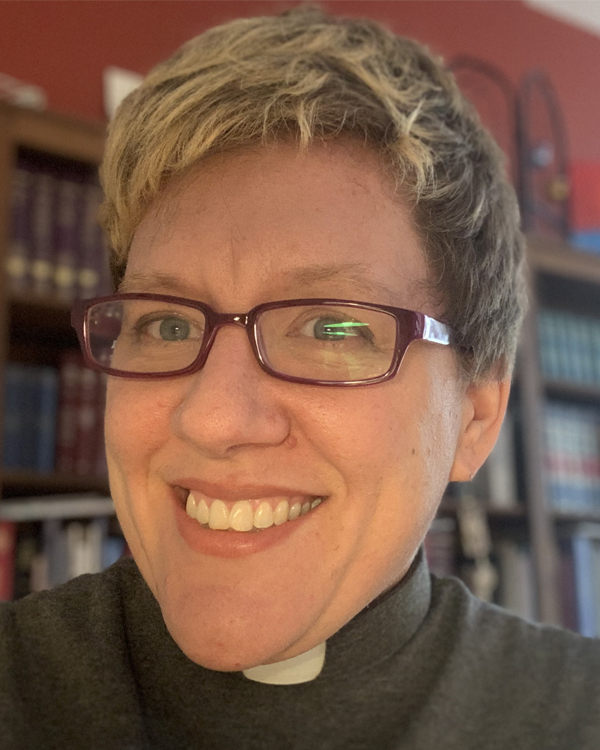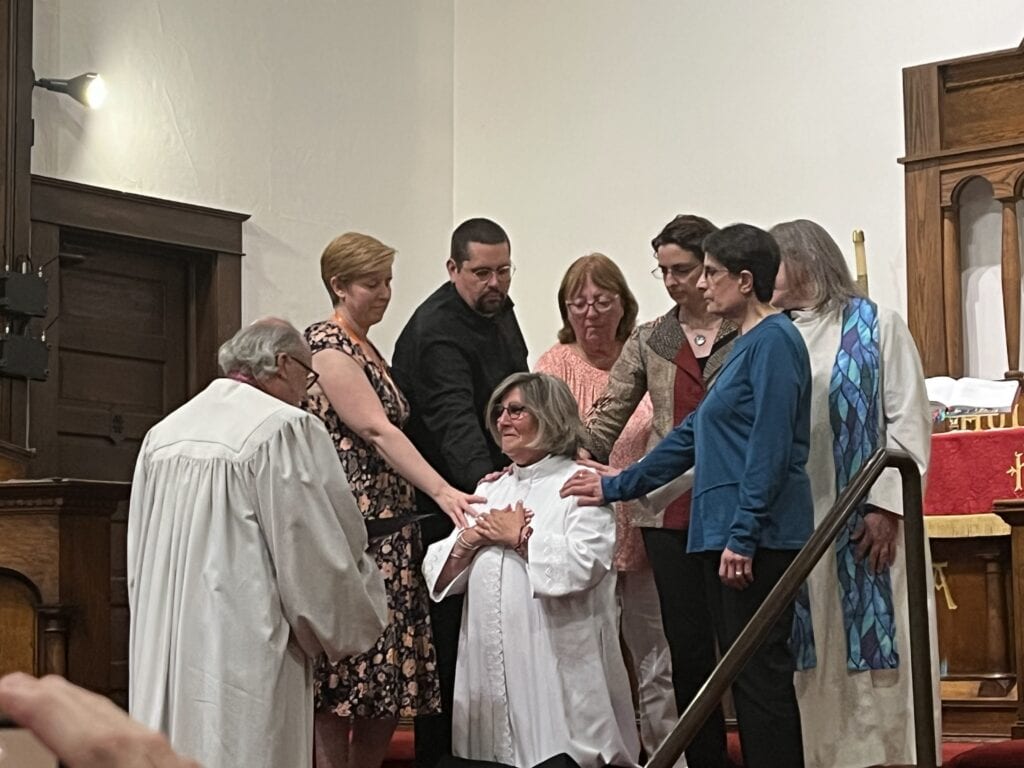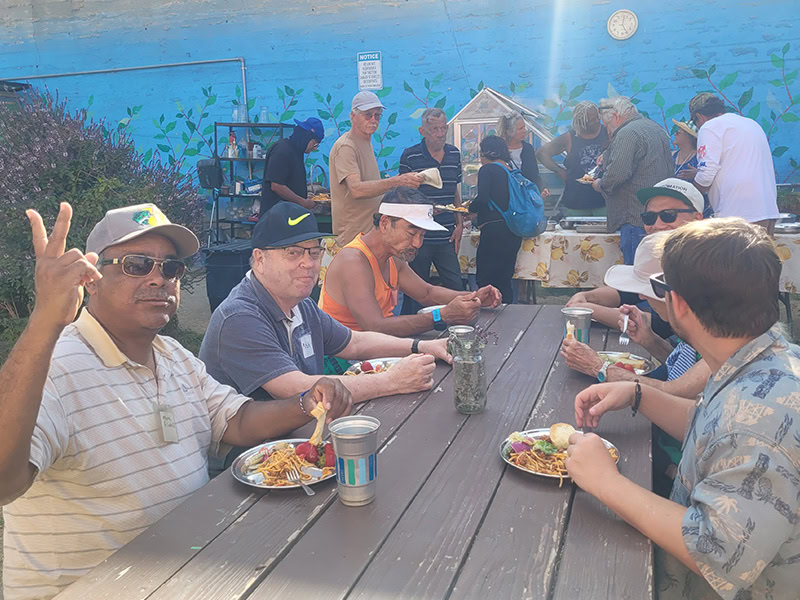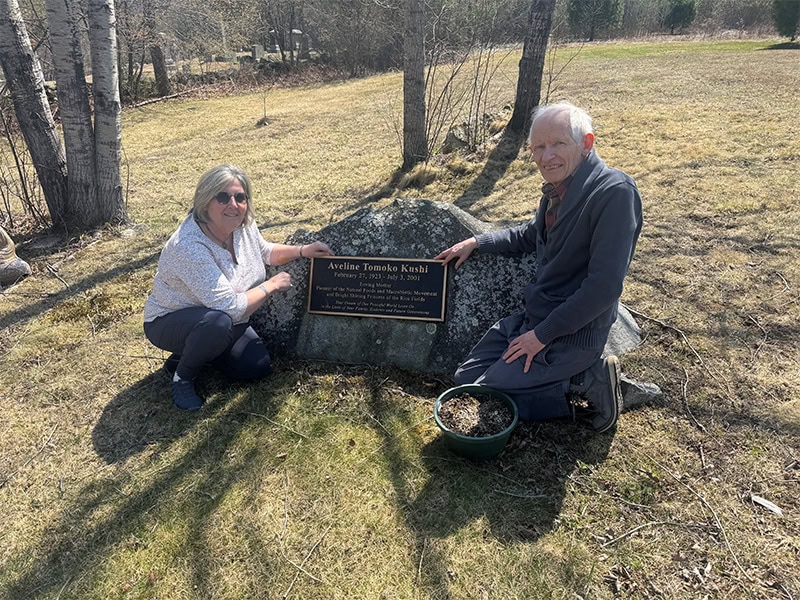Reflection on the Keynote Address
By Sage Cole
At Convention this past July, I offered a keynote address titled“Being Everyday Mystics: Helen Keller and the Inner Call of the New Church.” Standing before our denomination’s representative body, my intended address got lost in an exposed vulnerable panic as I spoke hardly a word at all. Thankfully (after a proper self-pity party), my intended words successfully came out several weeks later while lecturing at the Almont New Church Assembly. This annual Swedenborgian church camp, gathering around daily chapel services, theological discussions, flag raising, and banana hunts, has known me and loved me as a human for decades. At Almont, that familiarity and love helped me overcome my panic, providing a warm venue to speak about the inner call of the New Church, the essence of the church that I am coming to know beyond traditional church forms.
We all know as Swedenborgians that the church exists beyond its external forms. This is one of Swedenborg’s central teachings, that the church in its essence is the connection point between the Divine and the human, between that which is real and lasting and eternal, and the wild ups and downs of human life. We also know that several hundred years ago Emanuel Swedenborg spotted the arrival of a new church. He saw it starting to make its way from the Divine to the human realm bringing with it the promise of a full and complete paradigm shift in us.
A paradigm shift. A new way of being. A new connection point between the Divine and the human. A new church. A new way of being human.
It is this promise of newness that helped me find my home in the Swedenborgian church. This promise that I am being made new, that the world is being made new, and that there is much to be hopeful for, excited by, wondering about and imagining into being. This newness is one of promise and possibility, never of threat or demand. When I first walked into the circles of Swedenborgian community as a teenager, I felt an immediate welcome of who I am, without any pressure to conform to any particular beliefs or practices of the church. I was welcomed in and loved, appreciated, listened to, and engaged in conversation about the most important things in life, and given freedom and space to play and enjoy and make friends without any hidden agenda beyond the joy of being together.
This is the new church that I was first formed in. I then bounded off to seminary wondering how I could be a part of making this kind of joyful, open, loving community manifest in the world for others, as the Rev. Steve Pults and others had done for me.
Like any good and earnest twenty-five-year-old, I took on the work of becoming a Swedenborgian minister seriously. While newness and welcome and love and play still formed my highest intentions, in my work of preparation and training, I was now formed by a tradition, an organization, with a full course of expectations for learning and practice that I was set to succeed at.
My training was good and overall, my eighteen years of ordained ministry have been a success. I’ve been blessed to serve in a variety of venues, our denominations first online ministry, urban and rural congregational settings, in chaplaincy both in hospitals and hospice, and for a time in a large progressive Episcopal Church. I learned to preach and prepare bulletins and lead liturgy and offer many prayers at meetings and to kick-off small-town Veteran’s Day parades. I learned how to be the one in the clergy garb. I learned the benefit and the drawback of wearing the collar and robes. Clergy garb can open up some people to share their deepest fears and longings, but it can also close others down as they apologize for swearing and assume a Pollyanna stance towards me.
I’ve been a good minister, finding in it a role that suits me and that I feel grateful to perform in the world. And now, after the tumult of the pandemic years, after entering mid-life, and after struggling to serve a tiny urban congregation of too few members to sustain our community, I have been jostled awake, a reawakening to my initial call to seek love, openness, play, and curiosity. This is the call that brought me to seminary in the first place, and I am sure, sure as I’ve ever been sure of anything before in my life, that as beautiful and loved as the forms of our current denomination might be, the theology we pour over, the liturgies we practice, the statements of faith we profess, and the identity that we carry around, that all this external structure is not the fullness of the new church. The paradigm shift that Swedenborg declared, the new church that is on its way, is in fact here, here now and everywhere and in everyone. It can manifest within our external structure of church, sure, as it did for me in my time in the Swedenborgian Church Youth League (SCYL), as it continues to for those still participating in the forms that are left, but I feel the new church longing to manifest in a myriad of other forms, forms not yet imagined.
The Helen Keller Center for Spiritual Life is one such new form that I, along with others have been imagining into being. Long before I awoke to the much bigger reality of the new church, Helen Keller did, living her faith in a myriad of creative ways that broke the traditional sectarian model of religion.
Instinctively, I found my greatest satisfaction in working with men and women everywhere who ask not, “Shall I labor among Christians or Jews or Buddhists?” But say rather, “God, in thy wisdom help me to decrease the sorrows of thy children and increase their advantages and joys.
Helen Keller, My Luminous Universe
Helen knew what I am only now coming to know, that there really isn’t such a thing on an essential level, as a Jew or a Christian or a Buddhist or a Swedenborgian. That on an essential level we are all human beings inextricably linked to one another, with different ideas about things, different stories, different ways of doing things, but following the same course of life and growth, joy and sorrow, as all other beings.
I have come to experience this essential level of my own being. This essential level has of course always been there in me, always been in operation in me at times of rest and in the beautiful, best moments of my life. And I am now aware that my human machinations have kept me at odds with this essential level, alienating me from myself and from others, much too much of the time. Now that I have become conscious of this real essential space in me, and experience that it is the same as the essential space in all other life, I am committed to spending the rest of my life living more fully in and from this space. This space can be called by so many names, and one of the names that I love the most for it, that you might like to, is the Holy City, the Church of the New Jerusalem within me.
That’s where the new church ultimately resides, within me and within you. Not in a building. Not in a denomination. Not in a liturgy or a doctrine. It resides in us. In all of us. It is descending, it has been for some time, and it is as always making all things new.
So, friends, in honor of this descending, I would like to announce that this fall the Helen Keller Center for Spiritual Life will be beginning a new initiative to gather people of all faiths and stripes, Swedenborgian and otherwise, interested in gathering together as our most essential selves. I am calling this initiative,
Be Love, Be Honest, Be Useful.
Gatherings will be held on Zoom.They will begin with a time to Be Love together. What does that look like? While I’ll offer a quiet meditation to ground us, you may Be Love in the freedom that comes from being in your own home by making a sandwich or looking at the faces of those gathered with love or participating in your own devotional practice.
Then we will take time to Be Honest with each other. For many of us this may be the hardest part. We are so used to speaking to fulfill some external expectation, like when people behave differently in my presence because I am wearing a clergy collar. We speak to impress, to amuse, to argue, or to obfuscate. We rarely if ever speak honestly to share our inner experiences, avoiding uncomfortable vulnerability. But it’s time to start. Honesty and vulnerability are the path to wisdom. It’s how we get at the lived experience that we are all sharing. We can use the language of our traditions to express our experience, and this will bring our traditions alive and help us to understand one another and ourselves better.
Then lastly, we will Be Useful. We will offer each other support. We will commit to actions we are ready to take. We will invite each other into creative endeavors. We will start to articulate together what we need, what we want, what we dream of, and what forms of this new church we might like to create together.
While the new church is growing in me how much more joyful will it be to experience this growing new church together in community! Who knows what we might learn about ourselves, each other, and this great mystery of being alive. Stay tuned for more info about this initiative and please email me directly (revsagecole@gmail.com) if you know you want to be involved in some way.
Read the full issue of the Fall 2023 Messenger

Meet Sage Cole
Rev. Sage Cole is the Pastor of the Swedenborg Chapel in Cambridge, Massachusetts.



